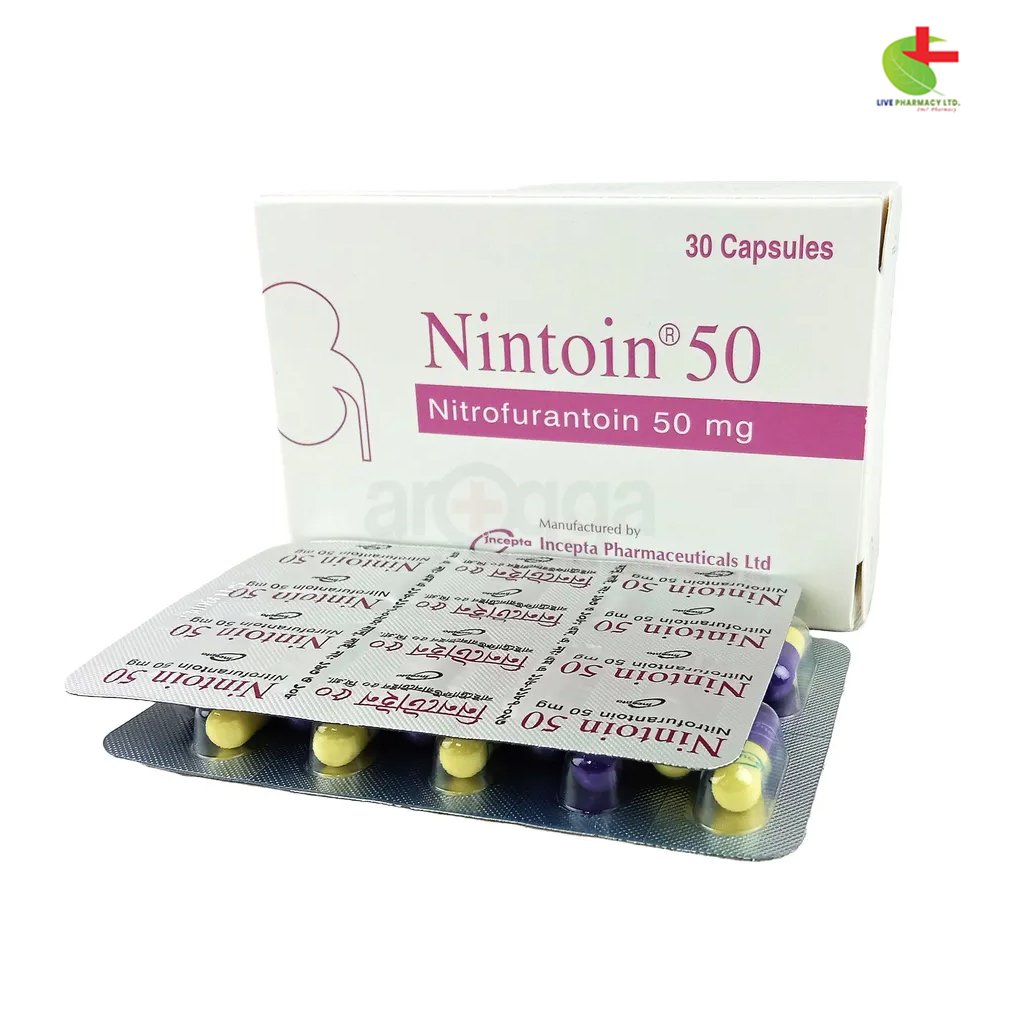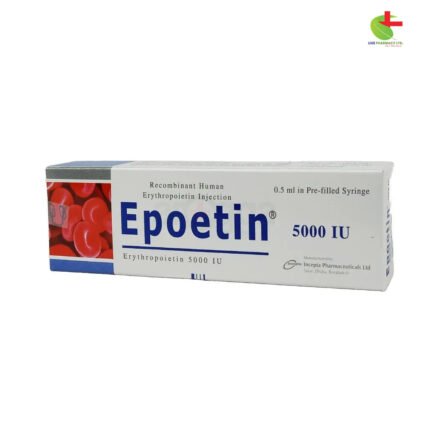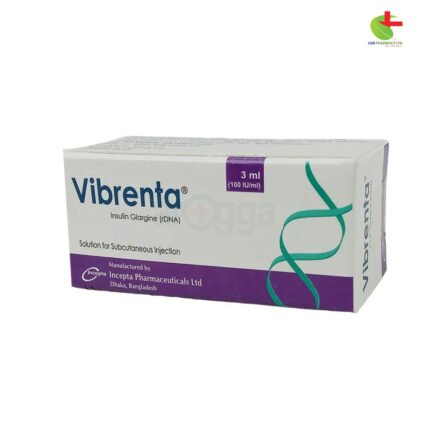Nintoin 50
40.00৳ Strip
- Nintoin is an effective antibacterial treatment for urinary tract infections (UTIs) caused by various susceptible bacteria, including Escherichia coli and Staphylococcus aureus.
- It works by inactivating bacterial proteins, ensuring targeted action within the urinary tract.
- Available in tablets, capsules, and suspensions, Nintoin is suitable for both adults and children.
- Always consult a healthcare professional before use to ensure safe and effective treatment.
 Brand
Brand
|
Incepta Pharmaceuticals Ltd |
|---|---|
 Generics
Generics
|
Nitrofurantoin |
 Type
Type
|
Capsule |
Indications
Nintoin is primarily prescribed for the treatment and prevention of urinary tract infections (UTIs) caused by susceptible strains of Escherichia coli, Enterococci, Staphylococcus aureus, Staphylococcus saprophyticus, as well as specific strains of Klebsiella and Enterobacter species.
Pharmacology
Nitrofurantoin is an antibacterial agent specifically effective against urinary tract infections. It is highly soluble in urine, which may result in a brown discoloration. Nitrofurantoin works by inactivating or modifying bacterial ribosomal proteins and other macromolecules. It is effective against a range of bacteria, including:
- Gram-Positive Aerobes: Staphylococcus saprophyticus, Coagulase-negative staphylococci (including Staphylococcus epidermidis), Enterococcus faecalis, Staphylococcus aureus, Streptococcus agalactiae, Group D streptococci, and Viridans group streptococci.
- Gram-Negative Aerobes: Escherichia coli, Citrobacter amalonaticus, Citrobacter diversus, Citrobacter freundii, Klebsiella oxytoca, and Klebsiella ozaenae.
Dosage
Nitrofurantoin Tablets (Adults):
- Uncomplicated UTIs: 50-100 mg four times daily; lower dosage is preferred. Continue for one week or at least three days after urine sterility is achieved.
- Long-term Suppression: 50-100 mg at bedtime may suffice.
Nitrofurantoin Capsules (Adults):
- Acute Uncomplicated UTIs: 50 mg four times daily for 7 days.
- Long-term Suppression: 50-100 mg once daily.
- Prophylaxis: 50 mg four times daily during the procedure and for three days afterward.
Nitrofurantoin SR Capsules:
- Adults and Children over 12: One 100 mg capsule every 12 hours for seven days.
- Surgical Prophylaxis: One capsule twice daily on the day of the procedure and for the next three days.
Nitrofurantoin Suspension (Children):
- Dosage is 5-7 mg/kg/day in four divided doses (not recommended for infants under one month).
- Average dosages based on weight:
- 7 to 11 kg: ½ (2.5 ml) teaspoonfuls 4 times daily.
- 12 to 21 kg: 1 (5 ml) teaspoonful 4 times daily.
- 22 to 30 kg: 1½ (7.5 ml) teaspoonfuls 4 times daily.
- 31 to 41 kg: 2 (10 ml) teaspoonfuls 4 times daily.
Continue therapy for one week or at least three days after achieving urine sterility. For long-term suppression in children, doses as low as 1 mg/kg per 24 hours may be sufficient.
Always follow the advice of a registered healthcare professional when using this medication.
Administration
Nitrofurantoin should be taken with food.
Always consult a registered healthcare professional before use.
Interaction
Antacids containing magnesium trisilicate may reduce the absorption of Nitrofurantoin. Uricosuric drugs like Probenecid and Sulfinpyrazone can inhibit the renal tubular secretion of Nitrofurantoin.
Contraindications
Nitrofurantoin is contraindicated in cases of anuria, oliguria, or significant renal impairment. It should not be used in pregnant patients at 38-42 weeks or during labor and delivery, and in individuals with known hypersensitivity to Nitrofurantoin.
Side Effects
Common side effects include nausea, headache, and flatulence. Other possible effects may include diarrhea, dyspepsia, abdominal pain, constipation, vomiting, dizziness, and drowsiness.
Pregnancy & Lactation
Pregnancy Category B: Limited controlled studies in pregnant women exist. Nitrofurantoin should be used during pregnancy only if necessary. It has been found in trace amounts in human breast milk; therefore, the decision to continue nursing or discontinue the drug should be made based on its importance to the mother.
Precautions & Warnings
Discontinue Nitrofurantoin if acute, sub-acute, or chronic pulmonary reactions occur. Avoid antacid preparations containing magnesium trisilicate during treatment.
Overdose Effects
Acute overdosage incidents have generally resulted in vomiting, and inducing emesis is recommended.
Therapeutic Class
Systemic Urinary Anti-infective
Storage Conditions
Store at temperatures not exceeding 30°C, away from light, and out of reach of children.













Reviews
There are no reviews yet.